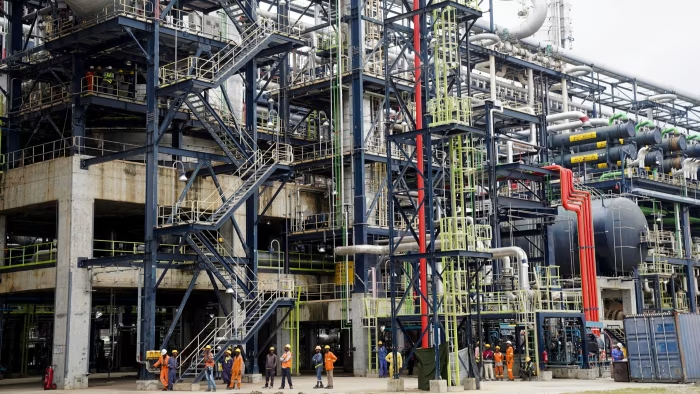The Nigerian President has ordered that Dangote, a Nigerian refinery, receive the sale of crude oil in local currency, Naira.

Oil marketers, refiners, and experts stated on Monday that they expect the prices of domestically refined petroleum products to crash due to President Bola Tinubu’s approval for the sale of crude oil to the Dangote Petroleum Refinery in naira.
Operators in the downstream oil sector commended the move by the President, stating that it would boost the outputs of domestic refineries, shore up the country’s foreign exchange reserves, and strengthen the naira. They also applauded the media for persistently bringing attention to this issue, emphasizing that Nigerian refineries shouldn’t persist in their struggle to obtain US dollars to purchase domestically produced commodities.

On Monday, Tinubu directed the Nigerian National Petroleum Company Limited (NNPC) to sell crude to the Dangote refinery and other upcoming refineries in naira. The Special Adviser to the President on Information and Publicity, Bayo Onanuga, announced this in a post via his official X handle. According to Onanuga, the Federal Executive Council adopted the move on Monday to ensure the stability of the pump price of refined fuel and the dollar-naira exchange rate.
The Dangote refinery has been embroiled in a crude oil supply crisis with the international oil companies operating in Nigeria. Earlier this year, it had some compliance issues with the country’s midstream/downstream regulator. The 650,000 barrels per day refinery got crude oil earlier this year from NNPC and a few IOCs but raised an alarm later that IOCs were not willing to supply crude oil to the plant as it had to switch to the massive importation of crude oil.

Industry stakeholders believe that this move will not only stabilize the supply chain but also significantly reduce the cost of refined products in the local market. By purchasing crude in naira, domestic refineries can avoid the high costs associated with dollar transactions, which have been a significant factor in the rising prices of petroleum products.
People view the strategic decision as a win-win, as it enhances the operational capacity of Nigerian refineries, boosts local production, and conserves foreign exchange reserves that have been under pressure due to high import bills. Additionally, this move is expected to improve the overall economic stability of Nigeria by reinforcing the value of the naira against major foreign currencies.



